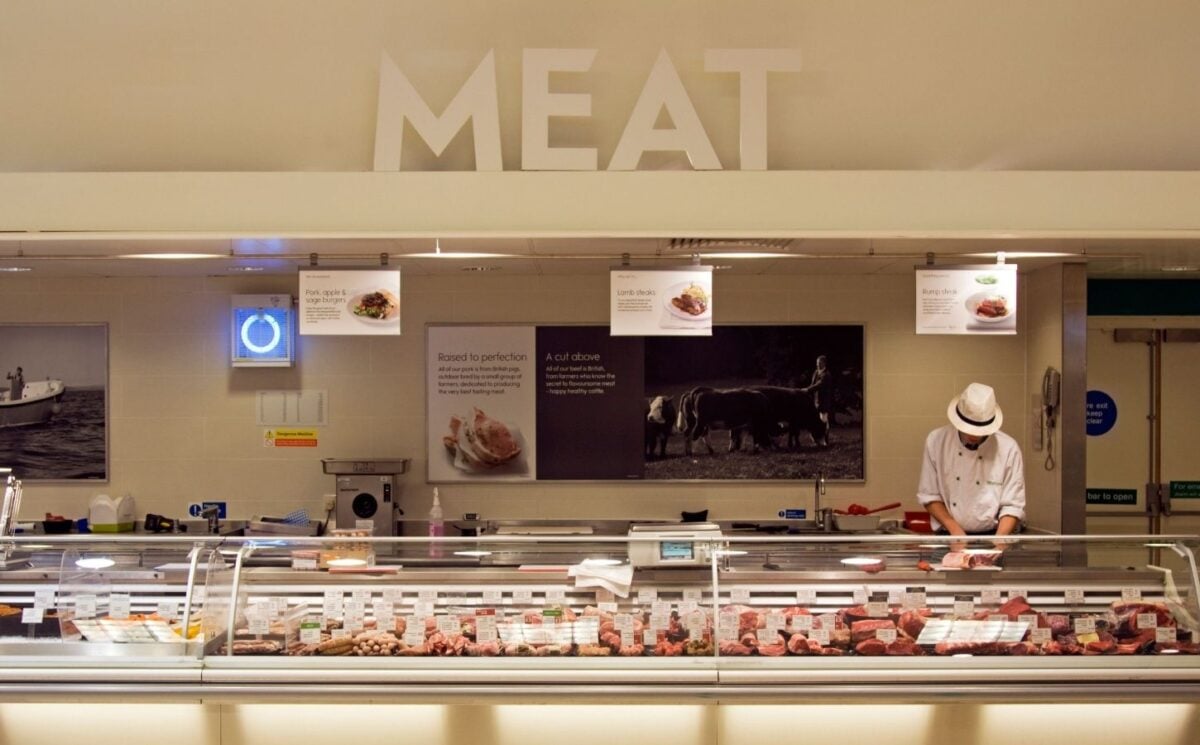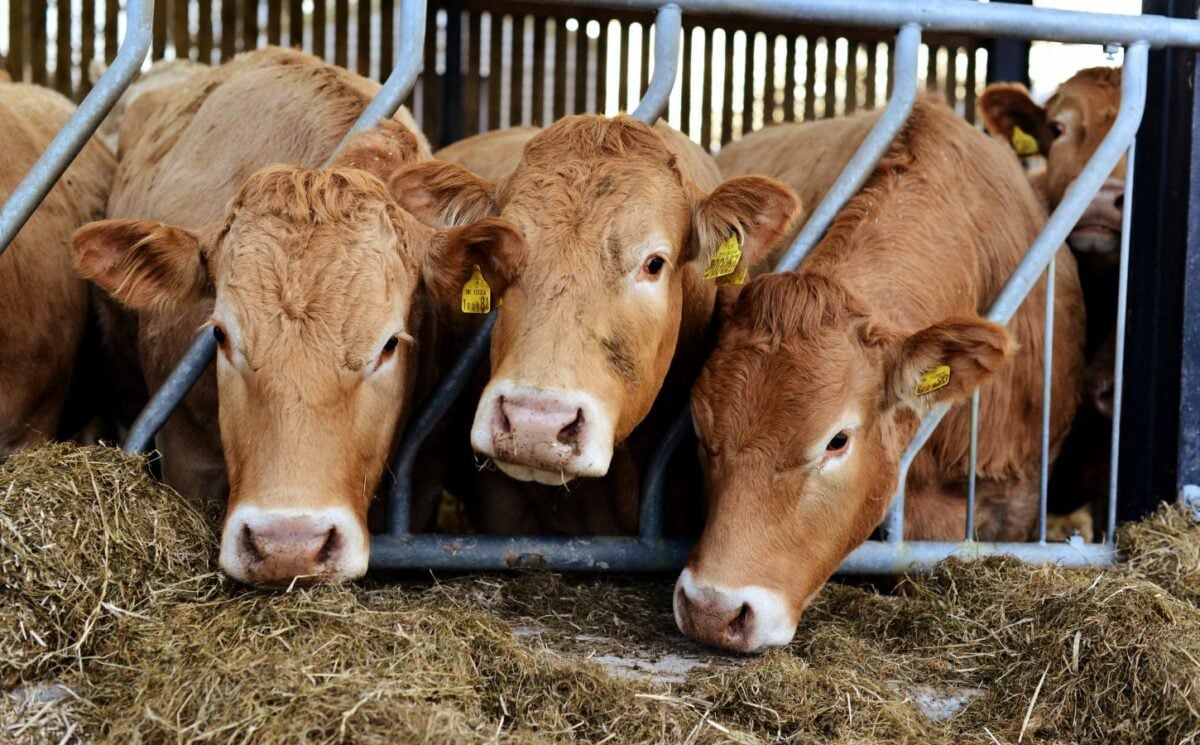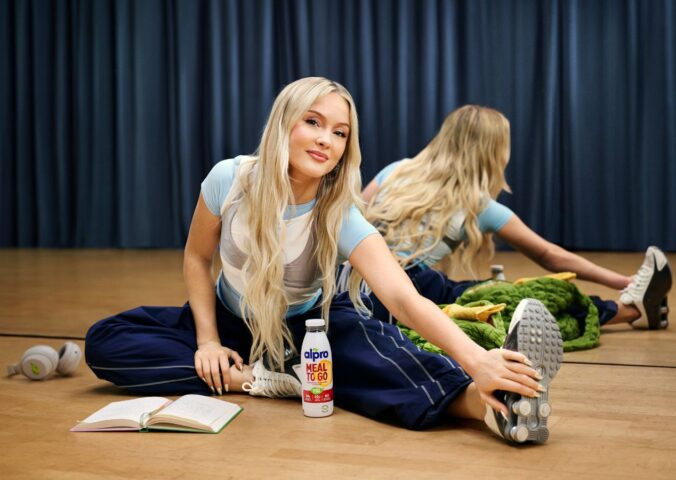A group of UK health professionals, including doctors and dietitians, have criticized a government-backed advertising campaign that promoted meat and dairy products.
Read more: BBC Debate: ‘Why Isn’t Processed Meat Scrutinized Like Plant-Based Meat?’
The campaign, named “Let’s Eat Balanced,” came from the Agriculture and Horticulture Development Board (AHDB). The organization is partly funded by farmers, and is part of the governmental Department for Environment, Food & Rural Affairs (Defra).
The ads were seen on TV, in newspapers, and in supermarkets across the country in January of this year. They were released to coincide with Veganuary, which saw people across the country drop animal products from their diet for the first month of the year. The ads urged people to eat lamb, beef, and dairy on the grounds that these are sources of vital nutrients like protein and B12.
In the new open letter, healthcare workers from Doctors’ Association UK (DAUK) and Plant-Based Health Professionals UK (PBHP UK), described the ads as “inaccurate and misleading.” They added that the campaign is “at odds with established scientific evidence on healthy and sustainable diets.”
Read more: Meat Industry Musical ‘Mad Cow’ Debuts At UK’s First Vegan Theatre
‘Your health claims are disingenuous’

The letter was co-written by Dr Matt Lee, DAUK’s sustainability lead, and Dr Shireen Kassam, Director of PBHP UK. It was also signed by organizations including the UK Health Alliance on Climate Change and the British Dietetics Association renal nutrition specialist group. Dr Lee and Dr Kassam wrote that meat is not needed to obtain nutrients like protein, B12, calcium, and zinc. While animal products do contain these, they are also easily accessible on a plant-based diet.
B12 isn’t easily found in plant foods, but it can be obtained through supplementation and eating fortified foods. The letter points out that modern farmed ruminant cows and sheeps are commonly supplemented with cobalt, which helps them make B12 in their gut. Some other farmed animals are directly supplemented with B12.
“Given that fortification of either animal or human food is required for B12 intake, direct fortification of human food or supplementation would be a more efficient use of resources,” the letter reads. It goes on to point out that calcium is found in beans, green vegetables, and some plant milks, as well as yogurts and calcium-set tofu. It states that the health claims made in the ads were “disingenuous.”
Meat consumption and disease
Dr Lee and Dr Kassam added that meat and dairy are linked to conditions such as heart disease, type 2 diabetes, high blood pressure, and some cancers.
“Replacing animal protein with plant sources of protein is associated with significant improvement in health outcomes, including reduced risk of premature death,” they wrote. “Yet the Let’s Eat Balanced campaign has links to suggestive ‘health benefits’ whilst ignoring the guidance to limit meat intake, particularly red and processed meat.”
Multiple studies have found that well-planned whole foods plant-based diets lower the risk of disease. Research published earlier this year found that the NHS would save £6.7 billion a year if everyone went vegan.
Better for us and the planet
The letter also notes that plant-based diets are significantly more environmentally-friendly than animal diets. Animal agriculture is a leading cause of the climate crisis. As well as being responsible for around 16.5 percent of global greenhouse gas emissions, it’s also driving deforestation, biodiversity loss, and contributing to pollution.
“In the UK, 70 percent of our total food-related emissions come from red meat and dairy production, the letter states. “Methane emissions from cows alone will prevent us from limiting global warming to safe levels.”
The organizations are calling for AHDB and DEFRA to retract the campaign. It also wants the government to work with health professionals to create policies that encourage increased consumption of plant foods, and reduced reliance on animal foods. “This would be invaluable to the health of the environment, the UK public, and to safeguard all our futures,” the letter concludes.
AHDB responds
In a statement to Plant Based News, an AHDB spokesperson said: “AHDB has responded to the open letter from the Doctors Association UK and the Plant Based Health Professionals (PBHP) strongly refuting the claim that the Let’s Eat Balanced campaign is misleading public health messaging.
“The ‘Let’s Eat Balanced’ campaign promotes a balanced approach to including red meat and dairy within a healthy, sustainable diet. It aligns with the Great Britain Nutrition and Health Claims Register and supports the government’s dietary guidelines, as outlined in the Eat Well Guide. Our marketing campaigns ALWAYS focus on lean products, never processed, helping signpost consumers to a healthier choice.
“AHDB reaffirms its commitment to providing evidence-based information on the nutritional benefits of red meat and dairy such as protein, iron, zinc, and vitamin B12.”
Read more: Is Vegan Food Really Worse For You Than Meat? A Factcheck Of Media Coverage






